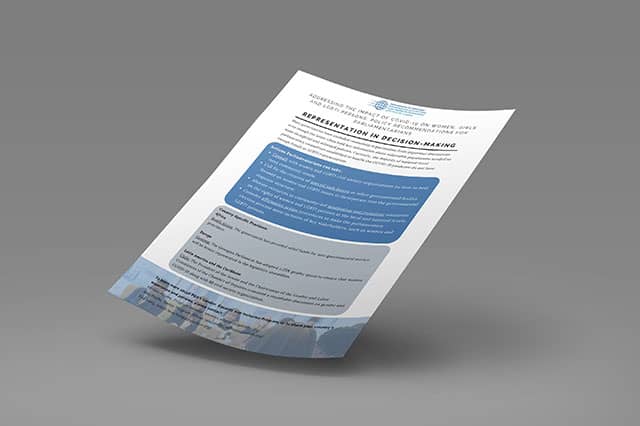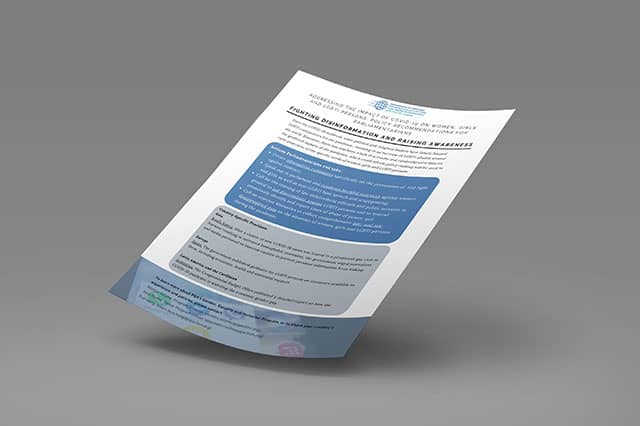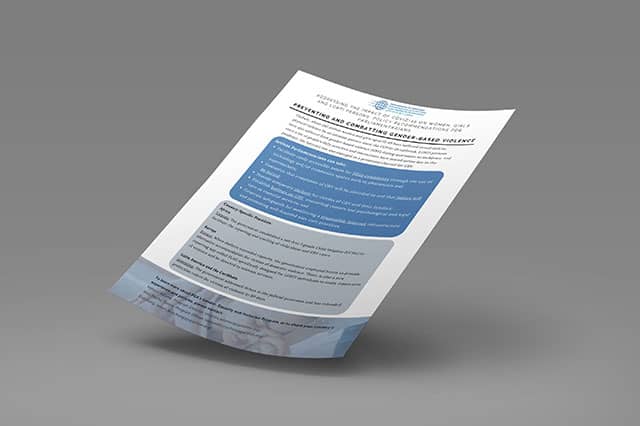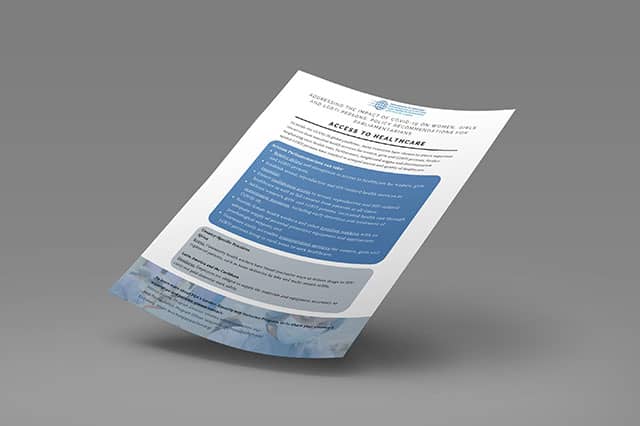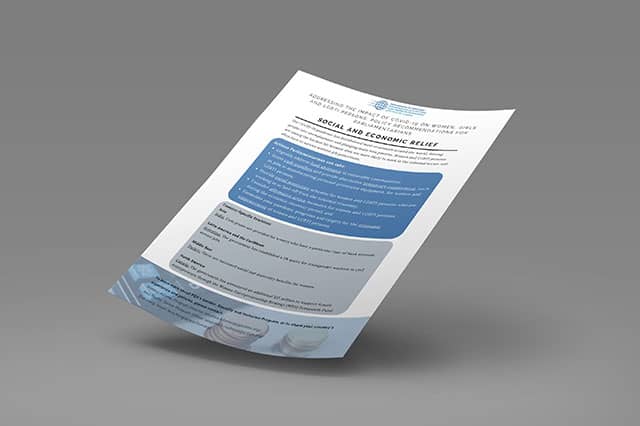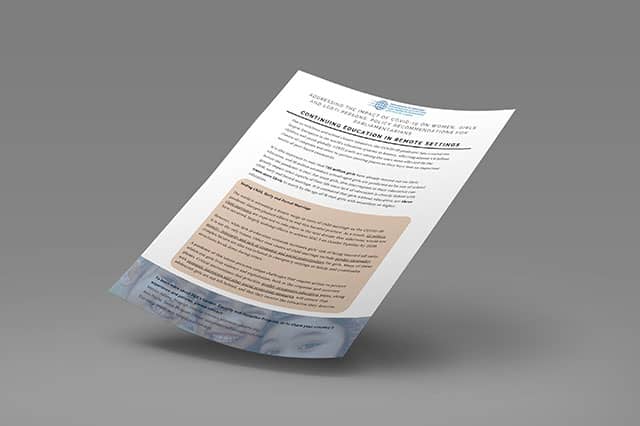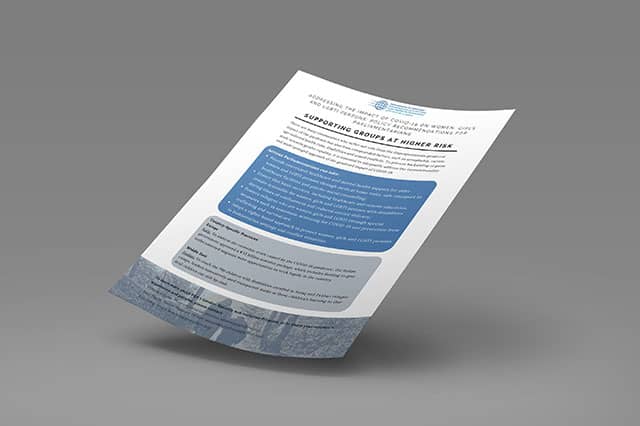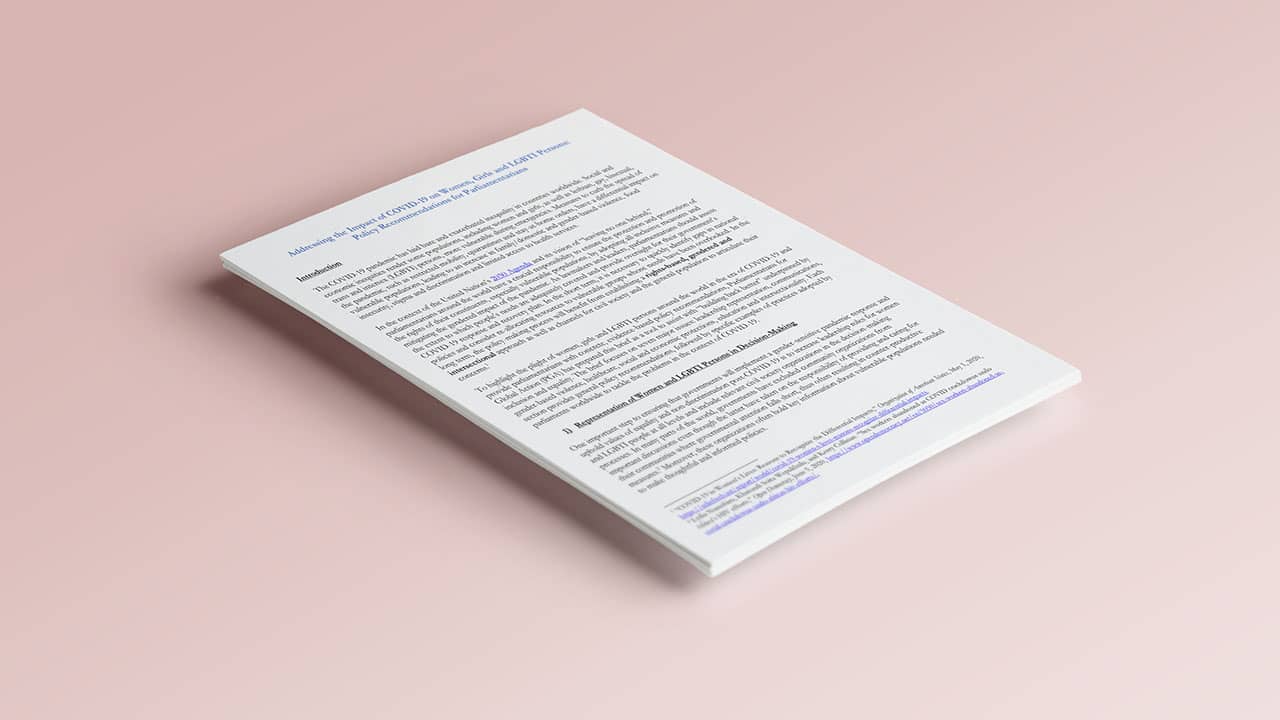Introduction
The COVID-19 pandemic has laid bare and exacerbated inequality in countries worldwide. Social and economic inequities render some populations, including women and girls, as well as lesbian, gay, bisexual, trans and intersex (LGBTI) persons, more vulnerable during emergencies. Measures to curb the spread of the pandemic, such as restricted mobility, quarantines and stay-at-home orders, have a differential impact on vulnerable populations, leading to an increase in family/domestic and gender-based violence, food insecurity, stigma and discrimination and limited access to health services.
In the context of the United Nation’s 2030 Agenda and its vision of “leaving no one behind,” parliamentarians around the world have a crucial responsibility to ensure the protection and promotion of the rights of their constituents, especially vulnerable populations, by adopting all-inclusive measures and mitigating the gendered impact of the pandemic. As lawmakers and leaders, parliamentarians should assess the extent to which people’s needs are adequately covered and provide oversight for their government’s COVID-19 response and recovery plan. In the short term, it is necessary to quickly identify gaps in national policies and consider re-allocating resources to vulnerable groups whose needs have been overlooked. In the long term, the policy-making process will benefit from establishing a rights-based, gendered and intersectional approach as well as channels for civil society and the general population to articulate their concerns.
To highlight the plight of women, girls and LGBTI persons around the world in the era of COVID-19 and provide parliamentarians with concrete, evidence-based policy recommendations, Parliamentarians for Global Action (PGA) has prepared this brief as a tool to assist with “building back better” underpinned by inclusion and equality. The brief focuses on seven major issues: leadership representation, communications, gender-based violence, healthcare, social and economic protections, education and intersectionality. Each section provides general policy recommendations, followed by specific examples of practices adopted by parliaments worldwide to tackle the problems in the context of COVID-19.

